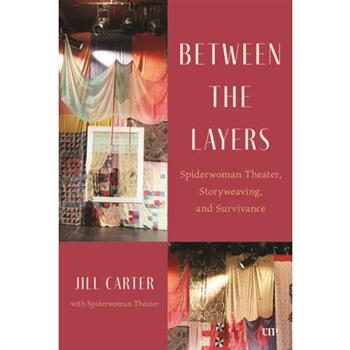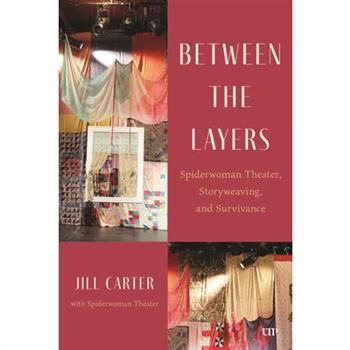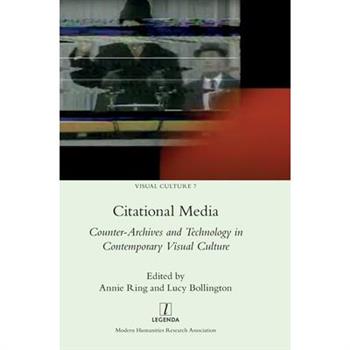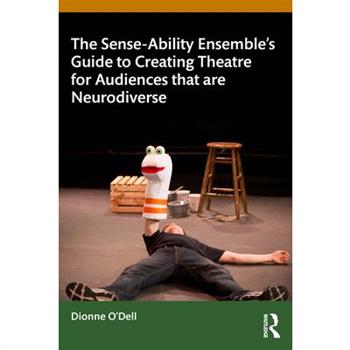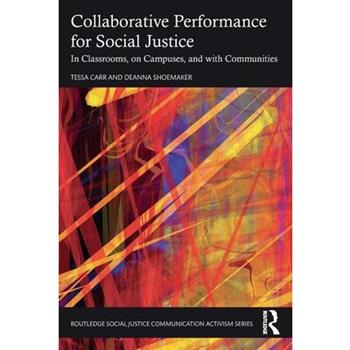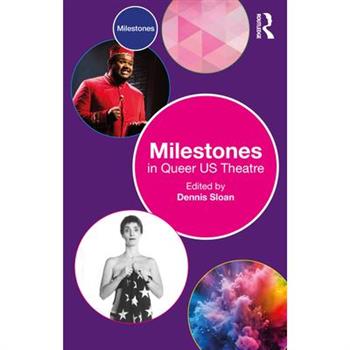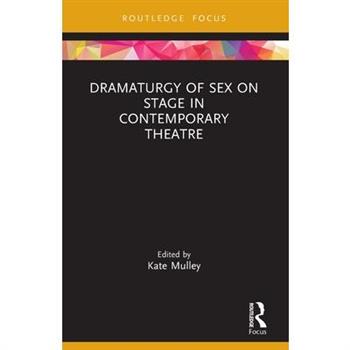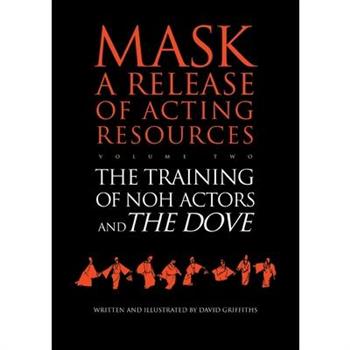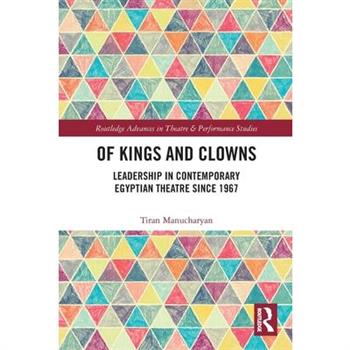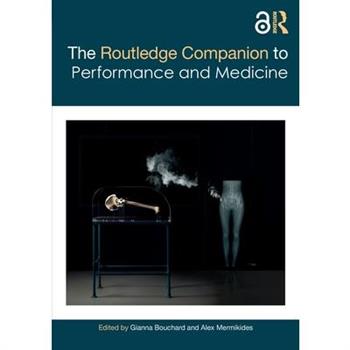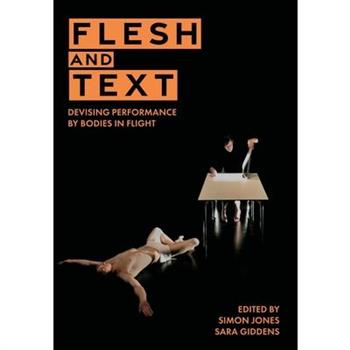Between the Layers
The Spiderwoman Theatre, the longest-running Indigenous theatre company in North America has heralded the revolutionary methodology of Storyweaving for generations of Indigenous artists. Storyweaving is a distinct methodology that governs the dramaturgical structure and performed transmission of the company's plays on the contemporary stage. The practice of Storyweaving predates written history. It has been (and remains) specific to tribal storytellers across the continent. The reclamation, then, of this aesthetic legacy by contemporary Indigenous storytellers is a crucial act of recovery. Jill Carter, an Anishinaabe-Ashkenazi theatre-worker and scholar, examines the process and development of Storyweaving. She studies how Storyweaving imagines and architects a functional framework that is being adopted and adapted by artists from myriad nations to create works (on the page and stage) that facilitate the healing, transformation, and survivance of their communities. Between the Layers pays respects to the teachers and visionaries that moulded this practice and encourages future generations to continue its legacy, while making a much-needed contribution to the study of Indigenous theatre and performance.In its painstaking documentation of the Storyweaving artform, Between the Layers refuses the devaluation, erasure, and suppression of Indigenous culture, while contributing to the dissemination and celebration of Indigenous Knowledge Systems.
Dealer’s Choice
Play the man, not the cardsSunday night. Stephen hosts a weekly poker game in the basement of his failing London restaurant. All the usual suspects are there; the chef, the waiters, the errant son...but tonight a stranger has come to play.Patrick Marber's acclaimed 1995 debut won the Evening Standard Award (Best Comedy) and the Writers' Guild of Great Britain Award (Best West End Play). Dealer's Choice has since been performed in more than 50 cities across the world.This updated edition with a new introduction by Patrick Marber was published to coincide with the 30th anniversary production at the Donmar Warehouse in April 2025.
The Pedagogic and the Performative in Indian Theatre
This book foregrounds the realm of Contemporary Indian Feminist Theatre in order to explore the inter-relationships between feminist theatrical theory, practice and its historical antecedents. The study focuses on the performance processes, training methods and pedagogical vocabulary used by four Indian women directors: Anamika Haksar, Anuradha Kapur, Kirti Jain and Tripurari Sharma. The book interprets the feminist emphasis on process as extended into actor training and rehearsal dynamics, investigating its innovations as well as limitations, while examining how successful these director-pedagogues were in bringing gendered and radical feminist sensibilities to their work in classroom spaces.
The Builders of Chinese Drama
This book provides a comprehensive overview of influential and popular Chinese drama actors and actresses, innovative directors, and emerging playwrights. It also offers insights into the features of Chinese stage design and the most prominent theatres in China, highlighting their role in the development of Chinese drama. Additionally, it provides a detailed description of Chinese audiences and their interactions with theatres. Furthermore, it provides a comprehensive overview of the major debates and discussions within the critical community surrounding Chinese drama.
Stupid Tv, Be More Funny
This comprehensive account of the meteoric rise of The Simpsons combines incisive pop culture criticism and interviews with the show's creative team that take readers inside the making of an American phenomenon during its most influential decade, the 1990s. "The best Simpsons book ever."―Alan Sepinwall​, Rolling Stone's chief television critic and author of The Soprano Sessions and TV (The Book) The Simpsons is an American institution. But its status as an occasionally sharp yet ultimately safe sitcom that's still going after 33 years on the air undercuts its revolutionary origins. The early years of the animated series didn't just impact Hollywood, they changed popular culture. It was a show that altered the way we talked around the watercooler, in school hallways, and on the campaign trail, by bridging generations with its comedic sensibility and prescient cultural commentary. In Stupid TV, Be More Funny, writer Alan Siegel reveals how the first decade of the show laid the groundwork for the series' true influence. He explores how the show's rise from 1990 to 1998 intertwined with the supposedly ascendent post-Cold War America, turning Fox into the juggernaut we know today, simultaneously shaking its head at America's culture wars while finding itself in the middle of them. By packing the book with anecdotes from icons like Conan O'Brien and Yeardley Smith, Siegel alaso provides readers with an unparalleled look inside the making of the show. Through interviews with the show's legendary staff and whip-smart analysis, Siegel charts how The Simpsons developed its singular sensibility throughout the '90s, one that was at once groundbreakingly subversive for a primetime cartoon and shocking wholesome. The result is a definitive history of The Simpsons' most essential decade.
The Post-Zombie
The living dead have come a long way from the shambling corpses depicted by George A. Romero. While traditional zombie monsters continue to flourish--thanks in part to the ongoing popularity of The Walking Dead universe--the global community now features reanimated zombies, resurrected zombies, protagonist zombies, robotic zombies, romantic zombies, fake zombies, zombie-adjacent monsters, and post-zombie zombies. This collection of scholarly essays considers recent and contemporary examples of zombies in fiction, literature, popular culture, and politics from around the world and makes the case that, because of the evolution of the undead, the zombie remains an important allegorical feature of horror fiction, satire, and ideological perspectives.
A Theatre of Powerlessness
Over the course of Edit Kaldor's Inventory of Powerlessness, developed and performed in four European cities (Amsterdam, Berlin, Poznan, Prague) between 2013-16, a range of situations, states and feelings - from quotidian frustrations to extremes of affliction, disadvantage and oppression - were brought into the collective setting of the theatre as spoken testimony. Meanwhile, a cumulative and archivable database or 'inventory' of powerlessness and its contemporary intersections was projected on stage, generated live by the participants at each performance. Thus, individual accounts of powerlessness were placed in relation to others, as acts of living knowledge and as claim upon the shared articulation that theatrical working together can foster. This book, departing from but not confined to the example of Inventory, explores contemporary ways of making and performing that bring marginalised knowledges into appearance and action. The book is not only for students of theatre, performance and art, but for anyone looking to develop ways of processing their experiences of affliction, injustice and violence in a collective setting. The book begins with an in-depth account of the Inventory of Powerlessness theatre project. Analysis of its production processes and dramaturgical strategies is set alongside the voices of several of the participants as well as other collaborators and people associated with the project, focusing on the 'acts of knowledge' that are performed as connections are made and shared - in the contingency of live performance - between diverse life-affecting experiences. A section of commissioned essays explores the knowledge-generating potential of the contemporary stage through the same optic of powerlessness and marginalised experience worked through an international range of examples.
The Adventures of Teddy and The Order of The Bear
Step into a world of magic, imagination, and heartfelt adventure in The Adventure of Teddy and The Order of The Bear. Written by acclaimed author and theatrical director Tullio Barrecchia, this beautifully crafted children's story is more than just a tale-it's a journey of courage, kindness, and self-discovery.Join Teddy, a lovable young bear with a heart full of wonder, as he embarks on an extraordinary quest guided by Bee and the wise voices of The Order of the Bear. Along the way, Teddy learns about bravery, friendship, alchemy, and the incredible power of believing in oneself. Blending Arthurian legend with playful storytelling and interactive coloring elements, this unique book invites young readers not only to enjoy the story but to become a part of it, one crayon stroke at a time.Perfect for children aged 5 to 10, this book is ideal for shared family reading, classroom inspiration, or imaginative solo exploration. With rich themes of empathy, creativity, and environmental awareness, The Adventure of Teddy and The Order of The Bear is a timeless tale that will spark young hearts and minds-encouraging every child to become their own kind of hero.
An Actor Prepares
2025 Facsimile of the 1936 Edition. This work is the first volume of Stanislavski's trilogy on the art of acting; it explains the art of acting in semi-fiction form. Fusing psychological realism and expressionism, his exploratory exercises teach actors to evoke past emotions that draw out their vulnerability. Stanislavski here introduces such concepts as the "magic if," "emotion memory," the "unbroken line" and many more now famous rehearsal aids. This classic manual is written from the viewpoint of fictional actors taking lessons from a director (based on Stanislavski). Through the student's mistakes, questions, revelations, and struggles, Stanislavski teaches the actor about the stage, truth, and life itself. Contents: The first test -- When acting is an art -- Action -- Imagination -- Concentration of attention -- Relaxation of muscles -- Units and objectives -- Faith and a sense of truth -- Emotion memory -- Communion -- Adaptation -- Inner motive forces -- The unbroken line -- The inner creative state -- The super-objective -- On the threshold of the subconscious.
The Adventures of Teddy and The Order of The Bear
Step into a world of magic, imagination, and heartfelt adventure in The Adventure of Teddy and The Order of The Bear. Written by acclaimed author and theatrical director Tullio Barrecchia, this beautifully crafted children's story is more than just a tale, it's a journey of courage, kindness, and self-discovery.Join Teddy, a lovable young bear with a heart full of wonder, as he embarks on an extraordinary quest guided by Bee and the wise voices of The Order of the Bear. Along the way, Teddy learns about bravery, friendship, alchemy, and the incredible power of believing in oneself. Blending Arthurian legend with playful storytelling and interactive coloring elements, this unique book invites young readers not only to enjoy the story but to become a part of it. One crayon stroke at a time.Perfect for children aged 5 to 10, this book is ideal for shared family reading, classroom inspiration, or imaginative solo exploration. With rich themes of empathy, creativity, and environmental awareness, The Adventure of Teddy and The Order of The Bear is a timeless tale that will spark young hearts and minds-encouraging every child to become their own kind of hero.
A Viewing Guide to the Pandemic
"I have had a headache all day. I am afraid of what will happen next."A Viewing Guide to the Pandemic is a film book like no other. It opens with the author's first-hand account of the Covid-19 pandemic and life in lockdown. His sense of dread, and anxiety about his state of health, were experiences shared with millions of others across the world. Already committed to writing a book about plagues and pandemics in popular culture, Covid-19 felt like a perverse twist of fate for Richard Scheib. Media depictions of deadly contagions had, to this point, been speculative and often off the mark; his book takes an in-depth look at what filmmakers imagined would happen and contrasts it with the reality.International in scope, the book examines films in a wide variety of genres, from the silent era to the present day. Black Death, Ebola, Mad Cow Disease, Bird Flu - it explores fictionalized accounts of plague and pestilence such as box-office hit Outbreak (1995), as well as 'mockumentary' treatments. Whether the threats depicted have a basis in reality - the biowarfare of the Cold War era, for instance - or are more fantastical, Scheib demonstrates how the fear of contagion has provided a wealth of inspiration for the big and small screen.
Identity, Culture, and the Science Performance Volume 2
Volume 2 of Identity, Culture, and the Science Performance investigates performances that illuminate the hidden recesses and inscrutable mysteries of the natural and human-made worlds. While the first volume of this series prioritizes public, outward-facing, and activist work at the intersections of art and science, this volume considers performances of localized, concealed, inexplicable, or intimate phenomena, from the closed-door procedures of biomedical trials to the impacts of climate change. Interdisciplinary science dialogues have long been shaped by the cultures and identity communities in which they arise and circulate. The essays, interviews, and creative works included here not only expose the historical and contemporary harms created by exclusive and prejudicial processes in art and science, they also contemplate how a diverse, inclusive body of science performers might help deepen how we "see" the unseen forces of our universe, contribute to novel scientific understandings, and disrupt disciplinary hierarchies long dominated by white men of privilege. This collection expands upon extant scholarship on theatre and science by foregrounding identity as a crucial thematic and representational element within past and present performances of science. Featuring interviews with science-integrative artists such as Lauren Gundersen (The Half-Life of Marie Curie) and Kim TallBear (Native American DNA) as well as creative works by playwrights Chantal Bilodeau and Claudia Barnett, among others, Identity, Culture, and the Science Performance, Volume 2: From the Curious to the Quantum proposes shifts in perspective and procedure necessary to establish and maintain sustainable cultures of science and art.
The Sense-Ability Ensemble’s Guide to Creating Theatre for Audiences that are Neurodiverse
This practical handbook provides guidance on how to create theatre for audiences that are neurodiverse and explores the journey of the Sense-Ability Ensemble in its quest to create theatre from the ground up for these audiences.
A Voice of Their Own
This open access book explores which audiovisual translation methods or techniques are the most ethical when translating personal narratives dealing with trauma and emotions, and provides good practice guidelines for different stakeholders (audiovisual translators, Language Service Providers, charities, survivors and filmmakers) to ensure that the voices of those who have suffered from trauma and Gender-Based Violence are ethically conveyed on-screen. It also shows how subtitlers cope with the translation of challenging sensitive material. The work described in this book is based on Prof Bosseaux's Ethical Translation project and is underpinned by a practical component: a multilingual documentary featuring women who have gone through traumatic events and whose first language is not English. Above all, the research emphasises the importance of filming and translating ethically with a focus on making sure survivors and audiovisual translators' voices are fully heard through respectful translation. This book showcases the theories and methods used and developed throughout the Ethical Translation project and the results of the research conducted, ultimately demonstrating the importance of carrying out practice-based research and encouraging collaboration between academics, practitioners and stakeholders to produce research that can be of use to, and be applied by, these groups.
Collaborative Performance for Social Justice
This engaging book offers a broad spectrum of collaborative, accessible performance-based practices to promote social justice and activist communication in the college classroom and campus, and local communities. It is essential for scholars and practitioners of communication, theater and performance studies, and more.
A Guide to (Short) Documentary Filmmaking
Using examples and hard-earned experiences from the Author's courses and lectures at the esteemed MFA in Documentary Film Program at Stanford University, this book explores what is unique about the short-form documentary and guides the reader through the process - from ideation to completion and distribution.
Milestones in Queer US Theatre
This introduction to queer theatre and performance in the United States explores the pioneering artists that have shaped this ever-changing field across the past two centuries, through ten key moments and movements.
Marvel Studios' the Infinity Saga - Captain America: Civil War: The Art of the Movie
The official art book for the movie Captain America: Civil War, the 12th title reissue of the 22-book Marvel Studios' The Infinity Saga series published as a resized matching set. The 12th of the 22 Marvel Cinematic Universe Infinity Saga film titles being published as a complete set. Picking up where the blockbuster hit Avengers: Age of Ultron left off, Captain America: Civil War sees Steve Rogers leading the new team of Avengers in their continued efforts to safeguard humanity. Filled with exclusive concept art, production stills, and commentary from cast and crew, this book is a prize for any fan. Here is everything you need to know about the making of the movie from all the key players--including returning directors Anthony and Joe Russo, and producer Kevin Feige, along with all the talented special-effects gurus, concept illustrators, visual-effects designers, and storyboard artists who worked on the set and behind the scenes to create the art of Captain America: Civil War.
Dramaturgy of Sex on Stage in Contemporary Theatre
This book explores the dramaturgy of sex in contemporary works for the stage in the social, cultural and historical context of the time and place during which they were written and performed.
The Training of Noh Actors and The Dove^n
First Published in 1998. This is the second volume of Mask: A Release if Acting Resources, and David Griffiths provides a detailed and sensitive view of the Japanese Noh theatre: historically, philosophically (with an evaluation of Zeami's treatises) and in respect of the rigorous practicalities of Noh training. The latter is given particular authority and insight because of the access Griffiths had to Noh actors in training and performance. Greatly enhanced with the author's illustrations, this volume gives one of the most accessible introductions to Noh that is available in English. Appended to the descriptive and analytic material is a short play, The Dove, written by Griffiths (and subsequently professionally performed) described as 'unashamedly' acknowledging its Noh influence. This one-woman price is a sensitive and evocative drama with subtle references to its cultural source. Is potential as an exercise in mask work is excellent.
Delsarte System Of Oratory
Unlock the secrets of eloquence and expression with the timeless "Delsarte System of Oratory," a masterpiece that has captivated audiences for generations. Once lost to time, this invaluable guide to the art of communication is now beautifully restored and republished by Alpha Editions, making it a must-have collector's item and cultural treasure. Dive into the revolutionary teachings of Fran ois Delsarte, whose insights into gesture, voice, and emotion have shaped the world of oratory and performance. This edition is not just a reprint; it is a lovingly restored piece of history, offering readers a rare glimpse into the techniques that have empowered speakers and performers to captivate audiences with grace and power. Whether you're a casual reader, a student of the arts, or a collector of classic literature, this book promises to enrich your understanding of human expression. Experience the enduring wisdom of Delsarte, preserved for today's and future generations, and transform the way you communicate with the world. Don't miss the chance to own this exquisite edition a true testament to the art of oratory.
Of Kings and Clowns
This book examines the transformations Egyptian theatre has undergone since 1967.
Exploring Character Through Structural Metaphor
Exploring Character Through Structural Metaphor will help performers discover new and valuable insights into the characters they play.
Tainted Souls
This booklet contains a number of short plays that I used (in various forms) through my 2021-2023 Fringe tours of a show initially called 'Tales Of Tainted Ma-at' to finally arrive at 'Tales Of Tainted Souls' as the show developed.The theme combines my love of ancient Egyptian literature along with something that I became hooked on during the COVID isolation a couple of years before: Tales Of The Unexpected. This was a TV series that initially ran from the late 1970's to mid 1983 in the UK. The first series was written and introduction by the writer Roald Dahl and those greatly inspired my twisted sense of mystery and the macabre at the time I first saw them as a child. During the COVID period I spotted them being rerun and fell in love with them once again.While I had a show centred around established ancient Egyptian literature (as a storyteller) I wanted something original and the idea struck me to merge that style of plot development with my love for ancient Egypt which ultimately lead to theses. The scope for twisted macabre was wide and I formulated around six short stories that I performed as short 10-15min stories for those fringe festivals with a one later becoming a fully cast radio play.I gathered my initial ideas from source material referred to as the 'Instructional Texts', these were a set of guiding principles or morals that a number of scribes, and in some cases Pharaoh, had laid down for leading the idea life. These morals provided a pivot for each story to send a character or more over the edge and transgress. Now, in the sprit of the Dahl's work, the idea is to throw as many redirections in as possible in as short space of time which as a writer is a very enjoyable exercise, and for the audience can be quite exciting and surprising. I relished the writing - and the performance too!
Isle of Dogges II
In 1597, the satirical play "Isle of Dogs" by Thomas Nashe and Ben Jonson opened at the Swan Theater in London. It was a howling success with its first and only audience, but the authorities were not amused. The play was slammed shut, most everyone connected with it was arrested, and all scripts seized and burnt. Only a few scraps of evidence survive about the play. This is an attempted restoration. You will be regaled with the roast of Elizabethan nobles, and be a companion of duplicitous actors. It is a comedy of scandalous pith; nothing was too good for the hounds of London. Beware of little Margot, she bites. She hath no art. COPYRIGHT, 2024
The Dramaturgy of History
In this book, dramaturg Tom Bryant shares with readers and writers his insights into the process of historical adaptation.
Playwriting with Purpose
Playwriting with Purpose: A Guide and Workbook for New Playwrights, Second Edition provides a revised and greatly expanded holistic approach to playwriting from an award-winning playwright and professor.This book incorporates craft lessons, scenes for study, and concrete guidance in both the art and business of playwriting. The author takes readers through the entire creative process, from creating characters and writing dialogue to revising and producing your play. Each chapter includes incisive craft lessons, provocative writing prompts, examples from plays, tips from working artists, reading recommendations, and more. Thoroughly revised, new features to this edition include: Vastly expanded sections on structure, world building, business of playwriting, writing for television and film, and more New writing exercises and pro tips from working playwrights in each chapter An exploration of art and craft through a new selection of international plays Shorter chapters with more subject headings to make it easier to find the exact craft lesson or writing prompt you want when you want it Playwriting with Purpose gives writers and students the tools to succeed in today's theater industry.
The Routledge Companion to Performance and Medicine
The Routledge Companion to Performance and Medicine addresses the proliferation of practices that bridge performance and medicine in the contemporary moment.
Choreographing Dirt
This book is an innovative study that places performance and dance studies in conversation with ecology by exploring the significance of dirt in performance.
Always Music in the Air
A first-time-ever exploration of the 290 songs from the entirety of win Peaks, sure to entice fans of the David Lynch-Mark Frost's cult classic that revolutionized TV, with brand-new interviews with Frost and several of the key composers and musicians involved. "Where we're from, the birds sing a pretty song and there's always music in the air." When author Scott Ryan (Fire Walk With Me: Your Laura Disappeared, The Last Days of Letterman) heard those words on the television series Twin Peaks in 1990, he wanted to live there as well. Problem was, most of the music that played in Twin Peaks was not released. Only one soundtrack came out from the series, and one from the film. It wasn't until 2011 that director David Lynch and composer Angelo Badalamenti opened the archives and released every track on MP3. These tracks were never officially released and do not stream anywhere today. Ryan interviews band members who performed the songs and music editors and directors from the series and draws from archived interviews with the late Badalamenti and singer Julee Cruise. This book explores all the music that was in the air, from Cruise's 1989 release Floating into the Night through all the Twin Peaks soundtracks, the 2011 online releases called the Twin Peaks Archives, and the releases from Twin Peaks: The Return in 2017. Ryan conducts brand-new interviews with Dean Hurley (composer for The Return, curator of the Twin Peaks Archive), Tim Hunter (director), Lori Eschler (music editor), David Slusser (composer, music editor), Kevin Laffey (A&R for Julee Cruise), Duwayne Dunham (editor, director), Kinny Landrum (keyboards), and Al Regni (saxophone). Also included are excerpts from Ryan's 2018 interview with Cruise. Foreword by Brad Dukes (Reflections: An Oral History of Twin Peaks).
Flesh and Text
Presents the history and an analysis of the experimental theater works produced by Bodies in Flight. Based in Bristol and Nottingham, the performance group Bodies in Flight makes works where flesh utters and words move, challenging and re-energizing the relationship between audiences and performers as well as audiences and place. Drawing on rigorous interdisciplinary and collaborative methods, they use words and images, movement and stillness, and voices and bodies to engage audiences emotionally and spiritually. Intended as an inspiration to emerging artists, the volume covers key themes for any maker of contemporary performance: the relationship of choreography and spoken word; the use of new technologies and multimedia; the role of original music and soundscapes; the differences between work presented in a theater, gallery, or sited in non-theatrical places; and the persistence of theater as an art form in an increasingly digital culture. This highly illustrated volume includes selections of scripts and archival material from thirty years of making devised theater and performance in the UK and internationally. It also features texts by collaborators, arts professionals, and scholars exploring the company's collaborative working method, contextualizing it in the wider performance ecology and culture.
Practicing Archetype
Practicing Archetype addresses performer training, specifically the self-pedagogy of actors who train solo, on their own, as an independent learning process, an opportunity for embodied research, and a form of critical pedagogy.
Pink Flamingos
The return of a spectacular, reviled, and iconic classic of American filth! John Waters takes us back to the scene of his original crime against good taste. Watch as Babs Johnson fights to hold on to her title as "Filthiest Person Alive," fending off the craven attempts to dethrone her by her nemeses Connie and Raymond Marble. Read along as Waters takes us on a romp through his camp and filthy vision of Baltimore, from nefarious baby-stealing lesbians to scenes of unspeakable things done to unsuspecting chickens, to the film's iconic and revolting coup de grace (no spoilers, but it is just as stomach-churning on the page more than fifty years later!). Pink Flamingos is John Waters at his provocative, disgusting, piety-puncturing best, with the hellish and hilarious trash masterpiece that first made him a household name.
Desperate Living
A grotesque and hilarious satire about the American dream, suburban living, and the corrupting influence of power, set in a world that could only have sprung from the unhinged and brilliant mind of John Waters. On the verge of a suburban mental health crisis, frazzled and wildly unstable housewife Peggy (immortalized by Mink Stole on-screen) runs away from home with her maid and partner in crime, Grizelda (played with spectacular gumption by the sizzling Jean Hill), only to end up in Mortville, a shantytown filled with society's rejects. Mortville is run by the evil Queen Carlotta, who parades through the cardboard streets taunting and terrorizing her subjects. John Waters' wild and visionary fable lampoons everything from the staid conservatism of the American dream to race and class relations. The New York Times ranked Desperate Living at "the highest peak atop [John Waters'] trash heap of a filmography." High praise indeed!
Run. Scream. Die.
This booklet contains scripts for short plays that that formed the basis of Kevin's 2025 fringe tour: 'Run. Scream. Die.'Inspired by Kevin's love of the slasher horror genre, this collection of short horror stories wrapped around the concept of lots at an auction, take the audience on a humorous and scary journey through Kevin's macabre imagination.
Bloody Good Shakespeare
For too long, Shakespeare has been tamed - trapped in academic reverence, smothered by tradition, and stripped of its raw theatrical power. But at Pop-up Globe, something different happened.Between 2015 and 2020, this radical theatre experience exploded onto the world stage, playing to 750,000 people with productions that were dangerous, hilarious, and wildly popular. Audiences stood, cheered, laughed, and wept as Pop-up Globe reignited the raw energy of Shakespeare's plays in ways not seen for centuries.Now, for the first time, Dr. Miles Gregory - founder and artistic director of Pop-up Globe - reveals the creative vision, bold artistic choices, and radical techniques that made these productions an international sensation. Part manifesto, practical guide, and behind-the-scenes exploration, this book offers directors, actors, and theatre-makers the tools to create Shakespeare that grips audiences and refuses to let go.How to direct Shakespeare with impact. From casting to staging, from unlocking the power of verse to making the text pulse with life, this book lays out a blueprint for productions that thunder with immediacy.The secrets behind Pop-up Globe's success. What made these productions different? How did a replica 1614 playhouse create an electric actor-audience connection? How did the company sell out theatres night after night?How to make theatre dangerous, unpredictable, and thrilling. Shakespeare's original audiences were rowdy, vocal, and deeply engaged. Discover how to shatter the fourth wall and make your audiences part of the show.Why Shakespeare still matters today - and how to prove it. Whether in theatres, classrooms, or experimental spaces, this book reimagines how Shakespeare can ignite modern audiences.A must-read for directors, actors, teachers, and anyone who believes Shakespeare should be alive, immediate, and unforgettable. It challenges old assumptions, overturns stale conventions, and proves that Shakespeare - done right - still electrifies audiences today.
Stories Make the World
Since the beginning of human history, stories have helped people make sense of their lives and their world. Today, an understanding of storytelling is invaluable as we seek to orient ourselves within a flood of raw information and an unprecedented variety of supposedly true accounts. In Stories Make the World, award-winning screenwriter Stephen Most offers a captivating, refreshingly heartfelt exploration of how documentary filmmakers and other storytellers come to understand their subjects and cast light on the world through their art. Drawing on the author's decades of experience behind the scenes of television and film documentaries, this is an indispensable account of the principles and paradoxes that attend the quest to represent reality truthfully.
Ambrose Chapel
Buried for decades. Now, Brian De Palma's wildest vision comes to life.Written in the 1990s between Carlito's Way and Mission: Impossible, visionary filmmaker Brian De Palma's Ambrose Chapel is his most overtly comic thriller-a wild, unproduced "screwball noir" that spins through kidnapping, virtual reality, mind control, murder, terrorists, romance, dream sequences and dueling memories. Set in a vividly imagined Mexico City, the story centers on Christe Rivera, a woman entangled in a shadowy conspiracy and haunted by a memory-or is it a dream? a lie?-that may be the key to everything. Along the way, Christe is drawn into the orbit of a billionaire with presidential ambitions and a plan to wall off Mexico from the U.S., while a half-forgotten Hitchcock film may hold the answer-if she can survive long enough to remember what's real and who she is.A kinetic blend of playful intrigue, romantic chaos and signature De Palma paranoia, Ambrose Chapel is a revelatory window into one of cinema's most iconoclastic auteurs, offering a vision both prescient and laced with volatile invention, and a thrilling glimpse of the film De Palma never got to make.
Ambrose Chapel
Buried for decades. Now, Brian De Palma's wildest vision comes to life.Written in the 1990s between Carlito's Way and Mission: Impossible, visionary filmmaker Brian De Palma's Ambrose Chapel is his most overtly comic thriller-a wild, unproduced "screwball noir" that spins through kidnapping, virtual reality, mind control, murder, terrorists, romance, dream sequences and dueling memories. Set in a vividly imagined Mexico City, the story centers on Christe Rivera, a woman entangled in a shadowy conspiracy and haunted by a memory-or is it a dream? a lie?-that may be the key to everything. Along the way, Christe is drawn into the orbit of a billionaire with presidential ambitions and a plan to wall off Mexico from the U.S., while a half-forgotten Hitchcock film may hold the answer-if she can survive long enough to remember what's real and who she is.A kinetic blend of playful intrigue, romantic chaos and signature De Palma paranoia, Ambrose Chapel is a revelatory window into one of cinema's most iconoclastic auteurs, offering a vision both prescient and laced with volatile invention, and a thrilling glimpse of the film De Palma never got to make.
A Tail of Forklure - A One-Act Comedy Play by Michael Starr
A Tail of Forklure is a one-act comedic fantasy stage play with a cast of five-one female and four male characters. Designed for a single or minimal set, it runs approximately 45 minutes. This is an acting edition book ideal for read throughs and rehearsals. This play includes occassional adult themes. A Tail of Forklure won "Best New Play" and was nominated for both the "NDFA Playwriting Award" and "Best Comedy Play" during its debut production with the touring theatre company, The Fringe Files. Long-lost friends Danny, Colin, and Jack reunite at an intimate house party hosted by their mutual pal, Gus. But this isn't just a casual gathering-Gus has a master plan, driven by an insatiable hunger for greatness. Male characters: 4 Female characters: 1 Non-specific characters: 0 Runtime: 45 minutes Genre: Comedy Staging: Minimal Ideal for: One act festivals Released: 2014 (updated 2025) Rating: Contains some swearing
Ricardo Dar穩n and the Construction of Latin American Film Stardom
This monograph examines the figure of Ricardo Dar穩n, the leading actor that drives Argentine cinema's box office success. It aims to fill a lacuna both in Hispanic and Anglophone academia regarding the study of how Ricardo Dar穩n's rise to stardom took place, and what that stardom means for the Latin American film industry. Accordingly, it examines whether or not Ricardo Dar穩n embodies the epitome of the contemporary Latin American or Hispanic star, and, importantly, whether or not the characteristics of the Hollywood star system are actually applicable in the case of Argentine cinema - where the dividing lines between so-called 'industrial' and 'independent' cinemas are very difficult to discern. Thus, whilst taking the study of this key figure from contemporary Argentine cinema as its focal point, this study will also facilitate an opening up towards broader but equally vital questions that continue to require full examination: How are Argentine, Latin American and Hispanic stars constructed? Does the leading actor of contemporary Argentine cinema embody a wider social group and historical moment in the region? Is his performative approach redefining a particular cinematic style?
Tale of Black Histories
?douard Glissant has emerged as one of the major figures of 20th-century postcolonial literature, and his novels, poetry, and essays have been widely translated and studied. Little has been written, however, about his cultural and educational activism which informed and shaped his theoretical work. This edition sheds light on this chapter of Glissant's career by translating and annotating the collaboratively composed and staged play, Histoire de N癡gre, which he helped to write and perform while teaching at the Institute for Martinican Studies.Featuring borrowed texts from postcolonial literature, primary historical documents, Creole songs, new ensemble-based scenes, and Glissant's original writing, Histoire de N癡gre was created in 1970-1971 by a group of schoolteachers at the Institute and performed for thousands of working-class spectators throughout Martinique. The play tells a tale that crosses time and space to stage the histories of slavery, colonialism, and anti-black violence, and the people's resistance against these forces. Our edition presents the first English-language translation of Histoire de n癡gre as well as documenting its complex historical and literary references, performance history, and place in its intellectual, literary, and theatrical contexts.Intellectually rich, formally innovative, yet long-neglected, Histoire de N癡gre offers a privileged window into Glissant's theatrical and educational activism, which formed the basis of his influential theoretical work Caribbean Discourse. The play exemplifies Glissant's work as a theatre artist and educational activist, expanding our knowledge of his thought and legacy.
Tale of Black Histories
?douard Glissant has emerged as one of the major figures of 20th-century postcolonial literature, and his novels, poetry, and essays have been widely translated and studied. Little has been written, however, about his cultural and educational activism which informed and shaped his theoretical work. This edition sheds light on this chapter of Glissant's career by translating and annotating the collaboratively composed and staged play, Histoire de N癡gre, which he helped to write and perform while teaching at the Institute for Martinican Studies.Featuring borrowed texts from postcolonial literature, primary historical documents, Creole songs, new ensemble-based scenes, and Glissant's original writing, Histoire de N癡gre was created in 1970-1971 by a group of schoolteachers at the Institute and performed for thousands of working-class spectators throughout Martinique. The play tells a tale that crosses time and space to stage the histories of slavery, colonialism, and anti-black violence, and the people's resistance against these forces. Our edition presents the first English-language translation of Histoire de n癡gre as well as documenting its complex historical and literary references, performance history, and place in its intellectual, literary, and theatrical contexts.Intellectually rich, formally innovative, yet long-neglected, Histoire de N癡gre offers a privileged window into Glissant's theatrical and educational activism, which formed the basis of his influential theoretical work Caribbean Discourse. The play exemplifies Glissant's work as a theatre artist and educational activist, expanding our knowledge of his thought and legacy.




